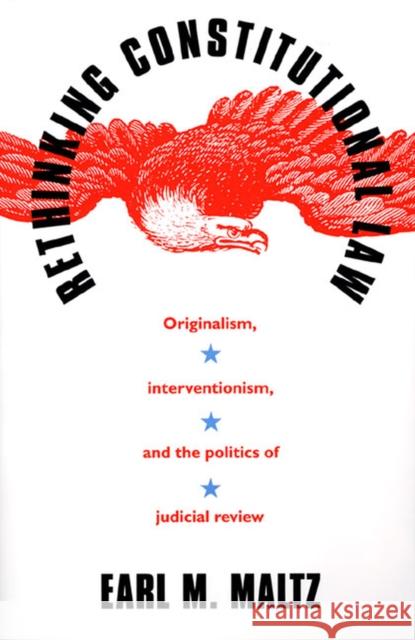Rethinking Constitutional Law: Originalism, Interventionism, and the Politics of Judicial Review » książka
topmenu
Rethinking Constitutional Law: Originalism, Interventionism, and the Politics of Judicial Review
ISBN-13: 9780700606535 / Angielski / Twarda / 1994 / 148 str.
Constitutional theory, Earl Maltz argues, has reached a critical impasse marked by a largely unproductive stalemate between originalists and nonoriginalists regarding the proper role of judicial review. It's time, he says, for both sides to rethink their positions if any hope for a more viable model of judicial review is to be realized. This book is his answer to the dilemma.
Maltz reorients the debate between originalists (those who believe that judges should be bound by the original understanding in constitutional adjudication) and nonoriginalists (those who believe the original understanding should not be binding). Advocates of both sides, he shows, generally proceed from three misguided premises: that originalism is linked to both judicial deference and political conservatism; that originalism is the sole alternative to some less deferential approach to judicial review; and that the question of "legitimacy" is the central unresolved issue facing nonoriginalist theorists. This book challenges each of these premises. Maltz's contribution is threefold. First, going beyond the influential writings of authors such as Raoul Berger and Robert Bork, he reformulates the justification for originalist review and refines originalist theory itself. Second, he argues that a pure originalist approach mandates excessive judicial intervention under the Constitution; as he points out, the same argument that justifies interventionism in individual rights cases might also require the court to limit sharply the power of the federal government to regulate the economy. Third, he shows that--even leaving aside problems of legitimacy--most nonoriginalist theorists have failed to provide a sufficient functional justification for nonoriginalist intervention.










